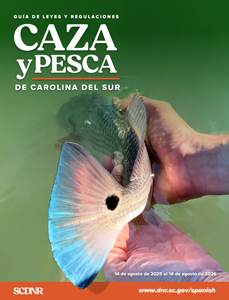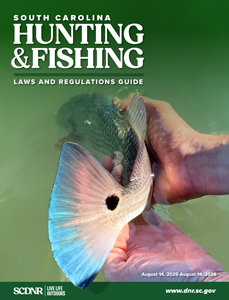South Carolina › Fishing › Department of Natural Resources Board
Department of Natural Resources Board

State of South Carolina
Henry McMaster, Governor
Department of Natural Resources Board
Dr. Mark F. Hartley, Chairman
Duane Swygert, Vice Chairman
Michael E. “Mike” Hutchins
Davy Hite
Hope Blackley
James Carlisle Oxner III
Jerry Allen Lee
Department of Natural Resources
Thomas S. Mullikin, PhD, JD, Director
Shannon Bobertz, Esq., Chief of Staff
Deputy Directors
Will Dillman, Wildlife and Freshwater Fisheries
Colonel Chisolm Frampton, Law Enforcement
Blaik Keppler, Marine Resources
Ken Rentiers, Land, Water & Conservation
The South Carolina Department of Natural Resources, AN EQUAL OPPORTUNITY EMPLOYER, prohibits discrimination on the basis of gender, race, color, national origin, disability, religion or age. Direct all inquiries to the Office of Human Resources, PO Box 167, Columbia, SC 29202.


